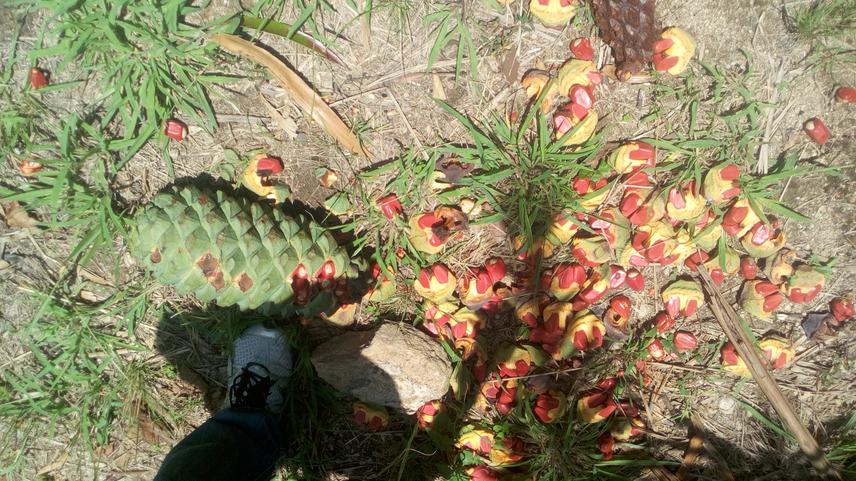Bulafu Collins Edward
The project aims to assess the population and distribution status of Encephartos whitelokii, collect germ plasm for ex-situ conservation, sensitise law enforcement agencies on laws relating to the species and raise awareness in use and participation in cycad conservation in Mpanga gorge.

Encephartos whitelokii is endemic to Uganda and only found at Mpanga gorge in the Albertine rift region, a hotspot of Africa. The species is threatened by an array of pressures including agriculture, fragmentation and human development particularly the construction of Mpanga Small Hydro Power station and urgently needs conservation attention. It has been estimated that about 99% of this single population is found outside the Queen Elizabeth National Park (QENP) and thus has no formal protection. There loss will undoubtedly also lead to loss of other organisms that it supports such as baboons, beetles, and bats. This project proposes a two pronged approach consisting of in-situ conservation and ex-situ conservation to address the conservation threat. For In-situ conservation to succeed, an inventory of the species to produce a detailed map and baseline information will be conducted. It’s from this inventory that mature seeds of the species will be collected and stored at the National gene bank (ex-situ conservation).
To address illegal trade in the species, law enforcement agencies will be trained and equipped with information related to its identification in the field and laws relating to the species. Lastly, to increase local participation in the species conservation, education and awareness training will be carried out aimed at highlighting the importance of the species for scientific research, ecotourism etc. and the habit as whole. Also the project will advocate for the extension of the boundaries of QENP as well as establishing a plant micro reserve targeting the species.